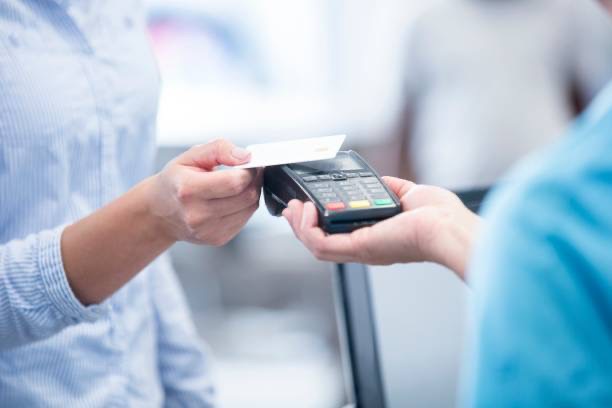As many of us take stock of our Christmas gifts, if you’ve got a present (or two!) to take back, do you know your rights when it comes to refunds and exchanges?

When an item is sold - in person or online - the customer making the purchase enters into a ‘contract’ with the person (or company) making the sale. The retailer agrees that what they’re selling is;
- as described
- of satisfactory quality
- and fit for purpose
If any of these conditions are broken then the customer has a right, in law, to return those goods.
However, the contract made at the time of the purchase is between the retailer and the person who bought the item. If that item was then gifted, the contract does not transfer unless a gift receipt is given too.
The first point to note is the difference between your statutory rights and a store returns policy.
The former are rules set out in law for the return of items to a retailer. A store returns policy may give additional comeback but does not affect your statutory rights.
However, if the retailer gives you additional benefit then they must stick to what is said.
Unwanted Items
Returning unwanted items you purchased in store isn't an automatic right - if the item is fit for purpose, as described and not faulty then you'll have to check the returns policy of the store.
If your item was bought online, over the phone or by mail order, as a customer you have consumer returns rights under the Consumer Contracts Regulations.
The Consumer Contracts Regulations gives you a cancellation period that starts the moment you place your order and ends 14 days from the day you receive your goods.
You then have a further 14 days from the date you notify the retailer that you'd like to cancel your order to return the goods to them.
Faulty or Wrongly Described Items
If an item does not match the three criteria listed above then you could be entitled to a repair, replacement or a refund.
Your consumer rights for returning goods fall under the Consumer Rights Act (which replaced the Sale of Goods Act in October 2015).
The Consumer Rights Act gives you the statutory right to return something and get your money back if it's faulty:
Within 30 days
You have the legal right to a refund if you return your faulty good within 30 days of receiving it, regardless of what the store's return policy says.
Between 30 days and six months
If you don't reject the goods within the first 30 days, and find a fault within the first six months of possessing your faulty goods, you'll need to give the retailer a chance to make a repair or replacement. If that's unsuccessful, you can then ask for a refund.
After six months
After the first six months, the burden of proof switches to you to prove the fault you've found was present at the time you purchased the goods in store or first took ownership of it if you bought it online.
The law does not detail how consumers can prove a fault was present at purchase, which can make it problematic when you’re asked to do so.

Store returns or exchange policy
The good news is that most retailers choose to provide a 'goodwill' returns policy offering an exchange, refund or credit note for most returns.
It's worth noting that shops aren't required by law to have a returns policy, but if they do have one they must stick to it.
Returns policies are usually displayed on receipts, on signs in store and online. You can also ring the shop's customer services line to find out its returns policy.
Remember that if you're trying to return an unwanted item purchased online, you have additional statutory rights under the Consumer Contracts Regulations.
Most retailers impose time limits for returning non-faulty products but many extend that (around Christmas for example) so you might have more time than you think to return an unwanted product.
If you paid by credit card, you also have extra protection under Section 75 of the Consumer Credit Act which holds the credit card company jointly liable for items bought using it.
Items that can't be returned
Many retailers have policies which stipulate that they will accept non-faulty returns, as long as items are unused and in perfect condition with their undamaged original packaging.
But there are some returns exceptions worth knowing about.
- DVDs, music and computer software - many retailers refuse returns if the seal or packaging has been broken.
- Perishable items - you won't usually be able to return an item if it's perishable. This includes food and flowers.
- Made to order - if an item has been made to order or personalised, it's very unlikely that you'll be able to return it.

What do you need for returns
Depending on a retailer’s returns policy some will only exchange or give you a credit note, while others will give you a refund. But all shops usually require a few key things.
- A receipt - always keep your receipt and take it with you. If you’re buying a gift for someone else, ask for a gift receipt so that they can change it themselves.
- The card you paid with - if you paid for an item on a debit or credit card, take it with you when you return the item. This is especially important if you want a refund as its often credited to the card you paid with.
- The original packaging - don’t underestimate the importance of taking the item’s original packaging with you. Even down to the pesky cable ties.
Can you exchange or get a refund without a receipt?
Whilst a receipt can often end up in the bin nearest the door of the shop - it’s a vital document when it comes to refund requests.
Your receipt shows vital information including the date of purchase, which can prove you fall within the duration of any returns policy. It also shows who served you and how much you paid.
If you simply change your mind, the retailer has no legal obligation to give you your money back if you return an item, with or without a receipt. Anything the shop does for you is over and above their legal obligation and without that proof of purchase they may not offer to do anything.
If your goods are faulty and you don't have the receipt, you still have the right to a repair, refund or replacement as under the Consumer Rights Act. You just need to show proof of payment, such as a bank statement with the transaction on it.
Do I have to accept a credit note for a return?
That depends in the circumstances. The retailer's returns policy may state that customers will only receive a credit note or vouchers, but this should only apply where the item is unwanted. The seller’s returns policy can't require customers to take vouchers where an item has been returned because it is faulty.
The Consumer Rights Act specifies the rights that consumers have if products develop a fault and the seller can’t remove or reduce these.














Comments
Add a comment